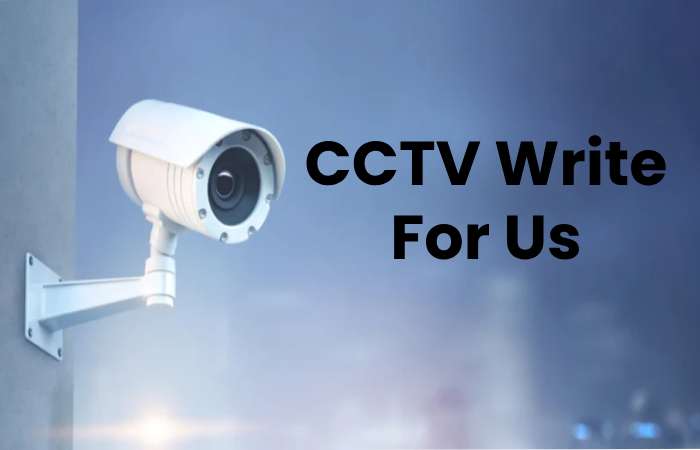CCTV Write For Us
Closed-circuit television (CCTV), also known as CCTV, uses video cameras to program a signal to a specific location on a limited number of monitors. It varies from broadcast television in that the signal remains not transmitted openly, although point-to-point (P2P), point-to-multipoint (P2MP), or wired or wireless mesh connections can remain used. While almost all video cameras fit this definition, the term remains most commonly used for surveillance in areas needing additional security or continuous management (video calls remain rarely referred to as “CCTV”).
Video surveillance of the public is common in many parts of the world. CCTV has generated significant debate on reconciling its use with individuals right to privacy, including in public places.
Technology
Early CCTV systems required constant monitoring as there was no way to record and store information. The development of reel-to-reel media has enabled the recording of surveillance footage. These systems required changing the magnetic tapes manually, a time-consuming, expensive, and unreliable process as the operator had to manually pull the video from the reel through the tape recorder to the rewind reel. Because of these shortcomings, CCTV was not standard. In the 1970s, VCR technology became available, making recording and erasing information easier, and video surveillance became widespread.
Digital multiplexing was developed in the 1990s and enabled simultaneous recording from multiple cameras, time-lapse, and pure motion recording. This saved time and money, leading to increased use of video surveillance.
Recently, the transition to Internet-based products and systems and other technological developments has improved CCTV technology.
Criminal Use
Criminals can use surveillance cameras to monitor the public. For example, a hidden camera in an ATM can intercept PIN codes entered without their knowledge. The devices are small enough to go unnoticed and positioned so the device keypad can remain monitored while people enter their PIN. Images can remain wirelessly sent to the criminal. Even legitimate surveillance camera data sometimes gets into the hands of people without the right to receive it.
How to Submit Your Article on Biztipsweb.com for CCTV Write For Us?
To submit guest posts, please read the guidelines mentioned below. You can contact us at the website contact form or contact@biztipsweb.com.
Why Write for Biztipsweb – CCTV Write for Us

Writing for Biztipsweb can expose your website to customers looking for CCTV.
Biztipsweb’s presence is on Social media, and we will share your article with the CCTV-related audience.
You can reach out to CCTV enthusiasts.
Search Terms Related to CCTV Write for Us
September 11 attacks
Homeland Security Grant Program
Chicago
Domain Awareness System
Washington, D.C.
Metro
Highways England
speed cameras
active traffic management
London congestion charge
traffic enforcement cameras
Northeastern University
University of Cambridge
meta-analytic
quasi-experimental evaluation designs
selection bias
endogenous
randomized controlled trials
natural experiments
Indianapolis 500
Search Terms for CCTV Write for Us
CCTV Write for Us
Guest Post CCTV
CCTV Contribute
Guest Post CCTV
CCTV Submit Post
CCTV submitted an article
Become a guest blogger
CCTV Write for us
Contribute CCTV
CCTV Submit post
Guest blogger CCTV
CCTV writers wanted
Submit an article
CCTV suggests a post
Contribute CCTV
CCTV guest author
Article Guidelines on Biztipsweb – CCTV Write for Us
We at Biztipsweb welcome fresh and unique content related to CCTV.
Biztipsweb allows a minimum of 500+ words related to CCTV.
The editorial team of Biztipsweb does not encourage promotional content related to CCTV.
To publish the article at Biztipsweb, email us at contact@biztipsweb.com
Biztipsweb allows articles related to tech, marketing, business, etc.
Related Pages
E-Commerce Write For Us
Accounting Write For Us
Accounts Write For Us
Analytics Write For Us
Firewall Write For Us
App Write For Us
Affiliated Marketing Write For Us
Air Conditioner Write For Us

